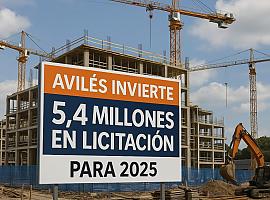Esta noche, el presidente Obama anunció un acuerdo bipartidista para reducir el déficit de la nación y evitar el incumplimiento del gobierno en sus obligaciones de pago. Se extiende el límite de deuda hasta 2013, eliminando la nube de incertidumbre sobre la economía y se asegura que nadie pueda utilizar la amenaza de incumplimiento, ahora o dentro de unos meses, para obtener beneficios políticos.
El compromiso bipartidista asegura que Estados Unidos cumpla con sus obligaciones - incluyendo mensuales cheques del Seguro Social, beneficios de veteranos, y los contratos que el gobierno tiene firmados con miles de empresas.
Con el fin de recibir el apoyo de ambos partidos - como el Presidente ha subrayado - el acuerdo tiene una serie de elementos importantes, entre ellas la reducción del déficit en dos tramos. También, el acuerdo garantiza la aprobación del mismo en las cámaras.
El acuerdo alcanzado aliviará, o eso se espera, al menos, en parte las tensiones a que los ventajistas financieros internacionales vienen sometiendo los mercados del capital, con perjudiciales impactos sobre las economías, especialmente las europeas.
FOTO_: El presidente Barack Obama hace una declaración a la prensa en la Sala de reuniones Brady de la Casa Blanca sobre el acuerdo en los esfuerzos en curso para encontrar un enfoque equilibrado para el límite de la deuda y la reducción del déficit. Foto: David Lienemann.
Good evening. There are still some very important votes to be taken by members of Congress, but I want to announce that the leaders of both parties, in both chambers, have reached an agreement that will reduce the deficit and avoid default -- a default that would have had a devastating effect on our economy.The first part of this agreement will cut about $1 trillion in spending over the next 10 years -- cuts that both parties had agreed to early on in this process. The result would be the lowest level of annual domestic spending since Dwight Eisenhower was President -- but at a level that still allows us to make job-creating investments in things like education and research. We also made sure that these cuts wouldn’t happen so abruptly that they’d be a drag on a fragile economy.Now, I've said from the beginning that the ultimate solution to our deficit problem must be balanced. Despite what some Republicans have argued, I believe that we have to ask the wealthiest Americans and biggest corporations to pay their fair share by giving up tax breaks and special deductions. Despite what some in my own party have argued, I believe that we need to make some modest adjustments to programs like Medicare to ensure that they’re still around for future generations.That's why the second part of this agreement is so important. It establishes a bipartisan committee of Congress to report back by November with a proposal to further reduce the deficit, which will then be put before the entire Congress for an up or down vote. In this stage, everything will be on the table. To hold us all accountable for making these reforms, tough cuts that both parties would find objectionable would automatically go into effect if we don’t act. And over the next few months, I’ll continue to make a detailed case to these lawmakers about why I believe a balanced approach is necessary to finish the job.Now, is this the deal I would have preferred? No. I believe that we could have made the tough choices required -- on entitlement reform and tax reform -- right now, rather than through a special congressional committee process. But this compromise does make a serious down payment on the deficit reduction we need, and gives each party a strong incentive to get a balanced plan done before the end of the year.Most importantly, it will allow us to avoid default and end the crisis that Washington imposed on the rest of America. It ensures also that we will not face this same kind of crisis again in six months, or eight months, or 12 months. And it will begin to lift the cloud of debt and the cloud of uncertainty that hangs over our economy.Now, this process has been messy; it’s taken far too long. I've been concerned about the impact that it has had on business confidence and consumer confidence and the economy as a whole over the last month. Nevertheless, ultimately, the leaders of both parties have found their way toward compromise. And I want to thank them for that.Most of all, I want to thank the American people. It’s been your voices -- your letters, your emails, your tweets, your phone calls -- that have compelled Washington to act in the final days. And the American people's voice is a very, very powerful thing.We’re not done yet. I want to urge members of both parties to do the right thing and support this deal with your votes over the next few days. It will allow us to avoid default. It will allow us to pay our bills. It will allow us to start reducing our deficit in a responsible way. And it will allow us to turn to the very important business of doing everything we can to create jobs, boost wages, and grow this economy faster than it's currently growing.That’s what the American people sent us here to do, and that’s what we should be devoting all of our time to accomplishing in the months ahead.Thank you very much, everybody.




















